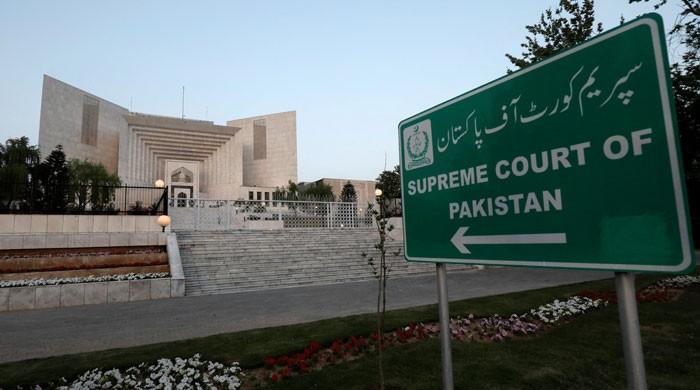Supreme Court Addresses Review Petitions on Reserved Seats
ISLAMABAD: The Supreme Court’s constitutional bench commenced hearings on review petitions submitted by the Election Commission of Pakistan (ECP), Pakistan Muslim League-Nawaz (PML-N), and Pakistan Peoples Party (PPP) concerning a prior court ruling. During the session, two justices declared the petitions inadmissible.
These review petitions challenged the Supreme Court’s decision from July 12, 2024, which had determined Pakistan Tehreek-e-Insaf (PTI) to be eligible for reserved seats.
A constitutional bench comprising 13 members, presided over by Justice Aminuddin Khan, convened to examine the review petitions related to the reserved seats case within the Supreme Court.
Justices Ayesha Malik and Aqeel Abbasi were the two judges who ruled against the admissibility of the review petitions.
Conversely, 11 justices have served notices to all parties involved in the aforementioned review petitions.
Additionally, the Attorney General of Pakistan has received a notice in accordance with Supreme Court Order 27A. In a separate development, the Supreme Court has initiated contempt proceedings against the electoral authorities for their failure to implement the July 12 judgement.
Justice Ayesha stated her rejection of the review petitions, promising to provide her rationale subsequently.
Counsel representing the ECP, PML-N, and PPP highlighted alleged errors in the initial majority ruling during the session.
In a surprising legal outcome, the Supreme Court decreed on July 12, 2024, that the party associated with Imran Khan was entitled to reserved seat allocation.
Implementing this judgement could potentially establish PTI as the largest single party in the National Assembly. However, the ECP has withheld implementation, citing objections to the verdict.
During the arguments, PML-N’s legal representative, Haris Azmat, contended that reserved seats were being assigned to a party that was not even a participant in the original case.
Justice Ayesha addressed this point, indicating that the answer was already articulated in the initial judgement. She further probed the foundation of the review petition.
Azmat noted that the PTI had a substantial legal team but did not contest those directives.
Justice Ayesha affirmed that the initial decision was rendered following thorough consideration of all arguments.
Justice Jamal Mandokhail pointed out that the bench had access to both the Returning Officer’s (RO) order and the election commission’s determination.
Justice Mandokhail questioned whether the nation should endure consequences for one party’s error and whether the Supreme Court should disregard evident information.
Justice Abbasi remarked that the PML-N lawyer was essentially reiterating his case within the review petition rather than specifying grounds for review.
Justice Ayesha questioned whether the initial judgement had been put into effect.
ECP lawyer Sikandar Mohmand asserted that the concise decision constituted the “order of the court.”
He argued that the court’s ruling granted relief to a party not involved in the case, which he deemed a substantial error necessitating a review of the decision.
Justice Ayesha questioned the ECP regarding its execution of the court’s directive. She also requested the ECP counsel to clarify how the election authority could be considered an affected party in the case.
The ECP’s lawyer sought permission to articulate the ECP’s perspective while acknowledging partial implementation of the court’s decision.
Justice Ayesha then inquired whether the ECP intended to selectively implement aspects of the court’s decision. She suggested that the ECP appeared inclined to implement favorable components while disregarding others.
Justice Mandokhail stated that the ECP’s response essentially equated to a rejection of the decision’s implementation.
Justice Mandokhail clarified that his concern lay not with the specifics of the case but with upholding the Supreme Court’s authority.
Justice Abbasi informed the court that a contempt of court petition was pending due to the non-implementation of the court’s ruling. PTI lawyer Salman Akram Raja verified that the contempt petition was scheduled for that day.
Subsequently, the constitutional bench adjourned the hearing on the review petitions until Wednesday at 11:30am.
In their dissenting opinions, Justices Ayesha and Abbasi deemed all three review petitions submitted by the PML-N, PPP, and ECP inadmissible and dismissed them. Justice Ayesha declared her intent to provide detailed reasons for her decision, a sentiment echoed by Justice Abbasi.
Notwithstanding the dissenting opinion, the constitutional bench has issued notices to the PML-N, PPP, and ECP regarding their review petitions.



Comments (0)
No comments yet. Be the first to comment!
Leave a Comment